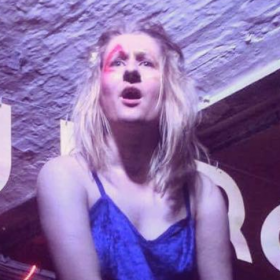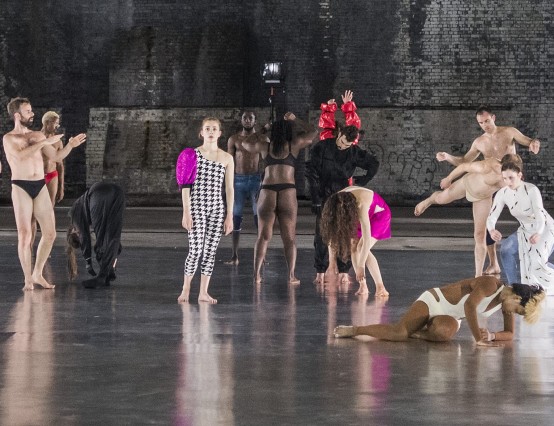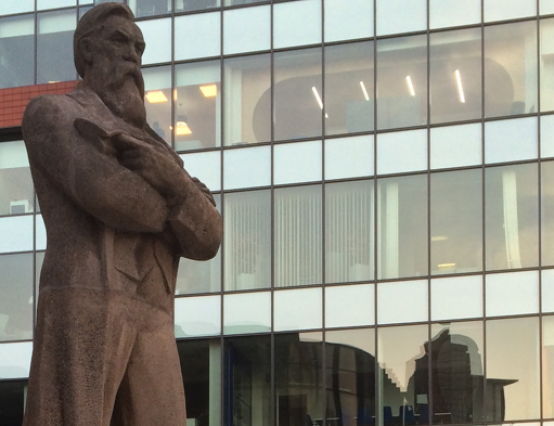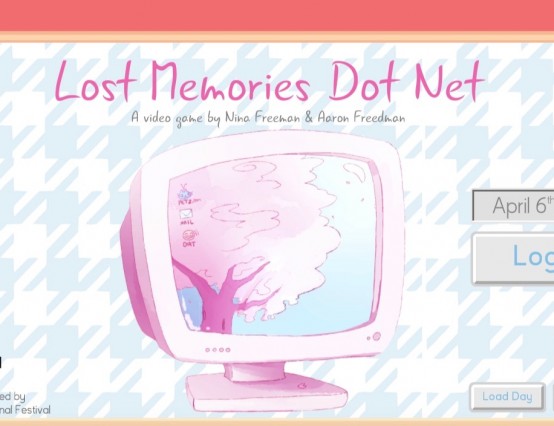Returning to Reims combined film and live performance to create a simple narrative full of current, topical themes around tolerance and togetherness in our interconnected world. It is all the more relevant with the questions hanging over the Western world over the last 12-18 months.
On entering the theatre at HOME, the first thing I noticed was the simplicity in the set of a recording studio. Familiar with director, Thomas Ostermeier's work, that was definitely not expected but I was glad for the surprise. It was a recording studio with a 60s/70s feel to it with only a poseur table, a couple of chairs, coffee table, a microphone and a television.
It was after a couple of seconds scanning the stage that I noticed newcomer, Ali Gadema, and Bush Moukarzel (Artistic Director of Dead Centre company) were already on stage in a sound booth. They were already talking and after some time I realised we could hear them over the speakers but, because of the hustle and bustle, the audience couldn't make out what exactly they were saying other than that they wanted to get a coffee.
Once the audience was settled, they left to get this coffee and then we were greeted by Homeland star, Nina Hoss, who took a seat on one of the chairs to be recorded. What exactly was she recording you may ask? Well, it was upon her arrival I noticed a screen in the background. We were then taken on a journey through film of Didier Eribon, the writer of the 2009 novel Retour à Reims, on which the play is based.
The film is being created by Moukarzel's character and addressed Eribon's thoughts, feelings and memories as described by Hoss' narration being recorded. We learnt about his family, his relationships, his sexuality and struggles he had to overcome. All of this set against the French working class background in which he grew up.
Only after about 45 minutes did the play delve deeper into the culture and politics of living and being raised in working class France. Ostermeier did not overload the audience with information about politics; using comedy and poetic language to really allow the audience to understand the class divide as well as the theories behind capitalism. As a result, we learn Rupert Murdoch might not be evil but might just be a winner.
The film finishes on a cliffhanger concluding that the left has completely changed and, now, people from the working class are now voting further right as they do not feel represented. It is then we learn the story of Hoss' character's father. This story explains how politics moves on and how Communism was only worth working towards for a while in fractured Germany. Her father then co-founded the Green Party, which he then also moved on from. We are told to explore the idea that political movements are not always worth entertaining for a lifetime.
It was, altogether, a deeply emotive story. It evoked around the theatre feelings of hope that change could happen.
Returning to Reims was light heartedly accessible, poetic and intriguing. It played with history versus the present day and the way in which party politics have changed. But, we should still have hope that someone somewhere could come along and change our ways.








Looks like a great play!